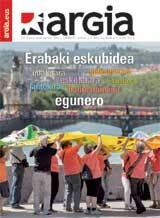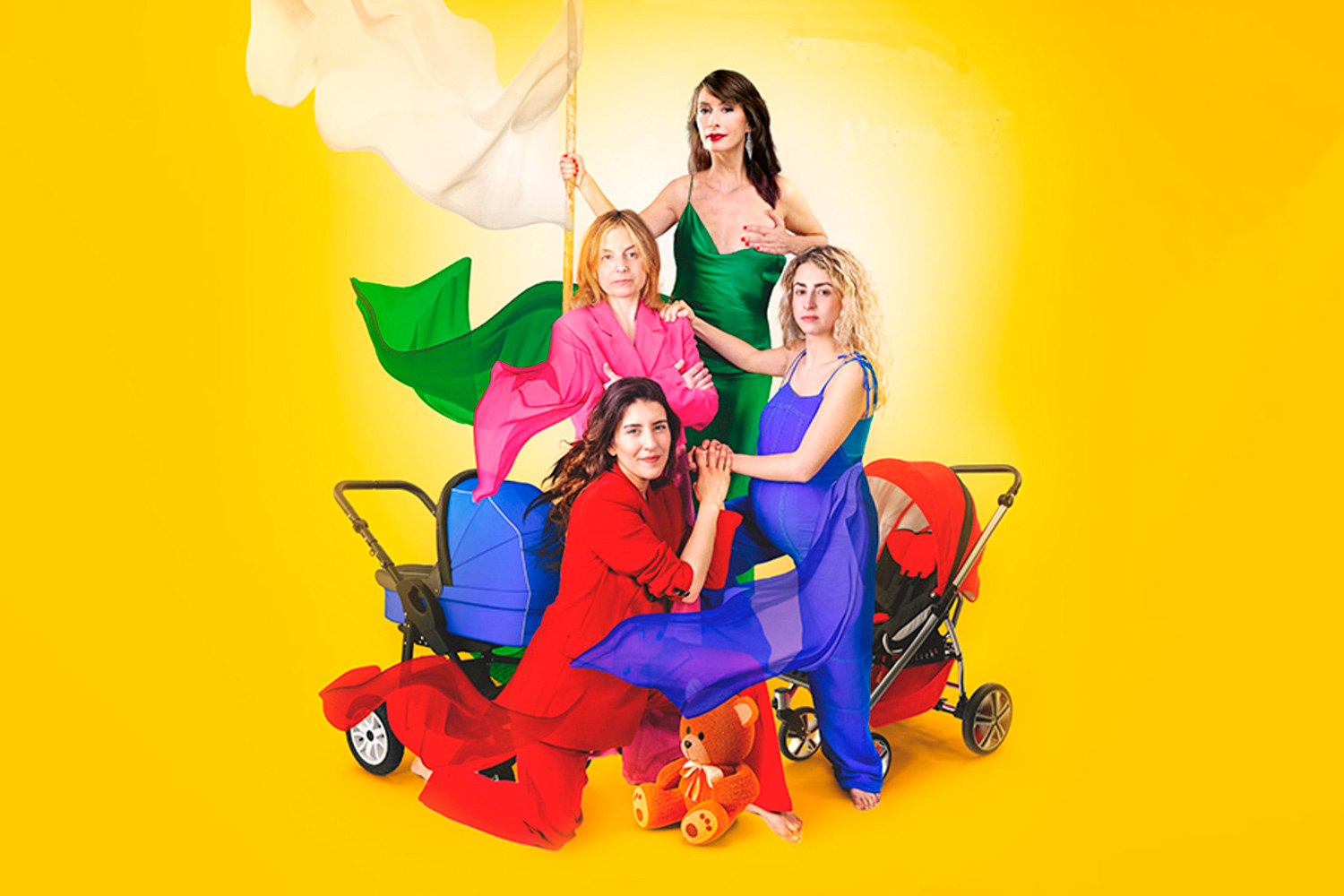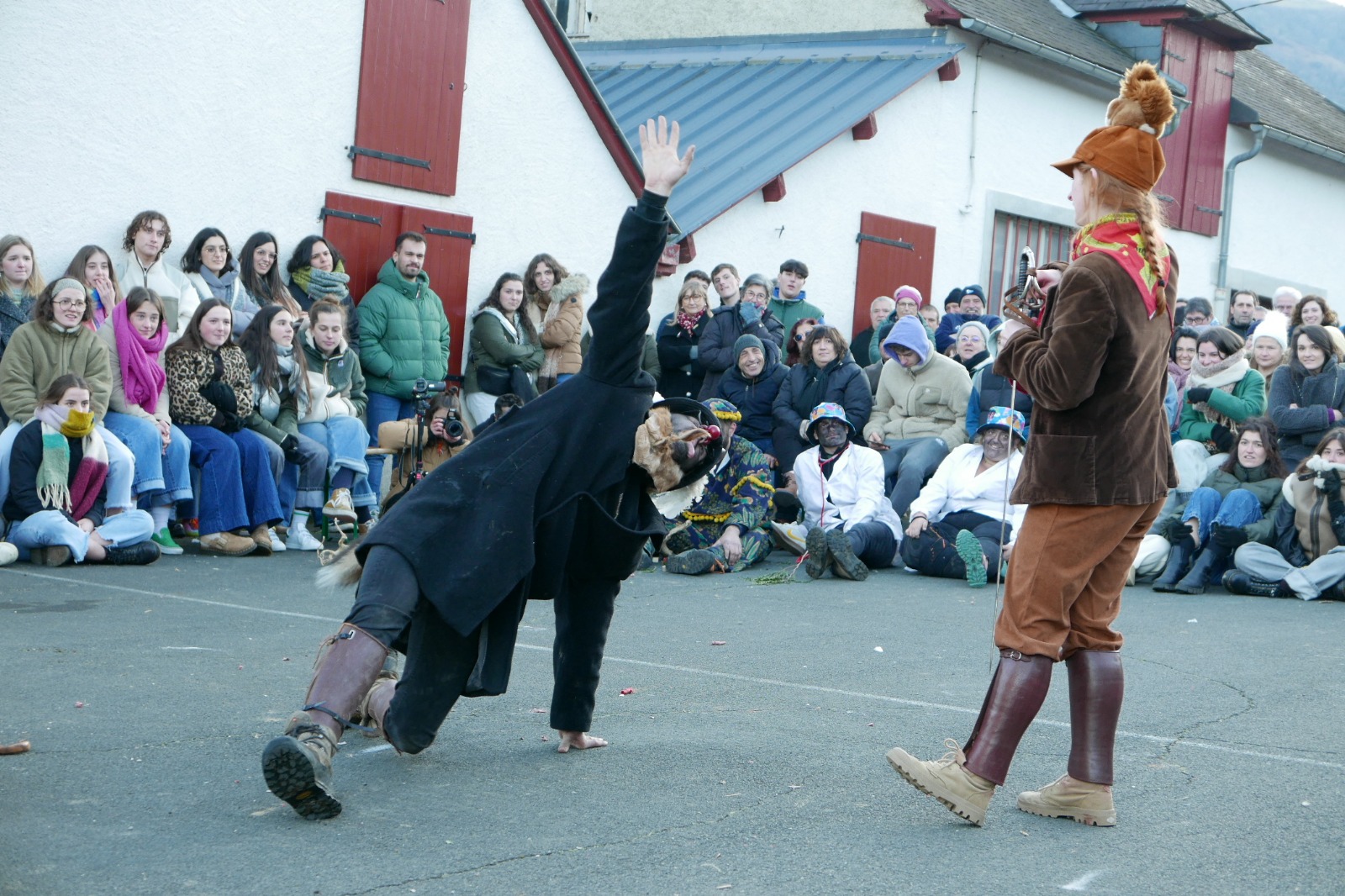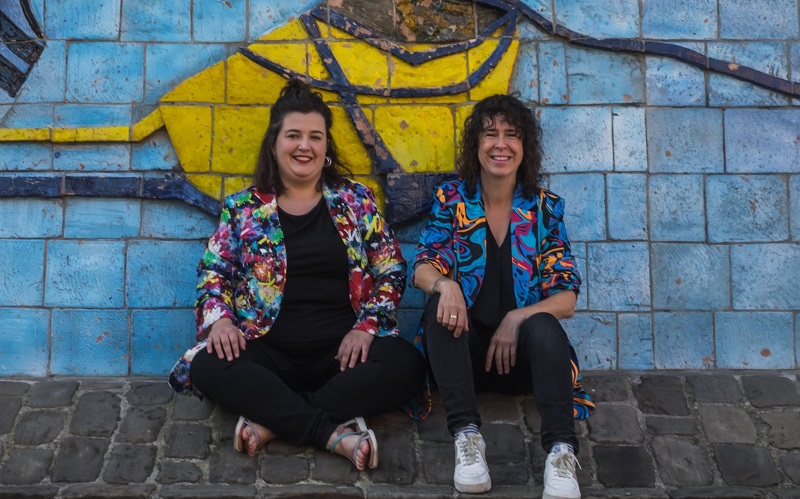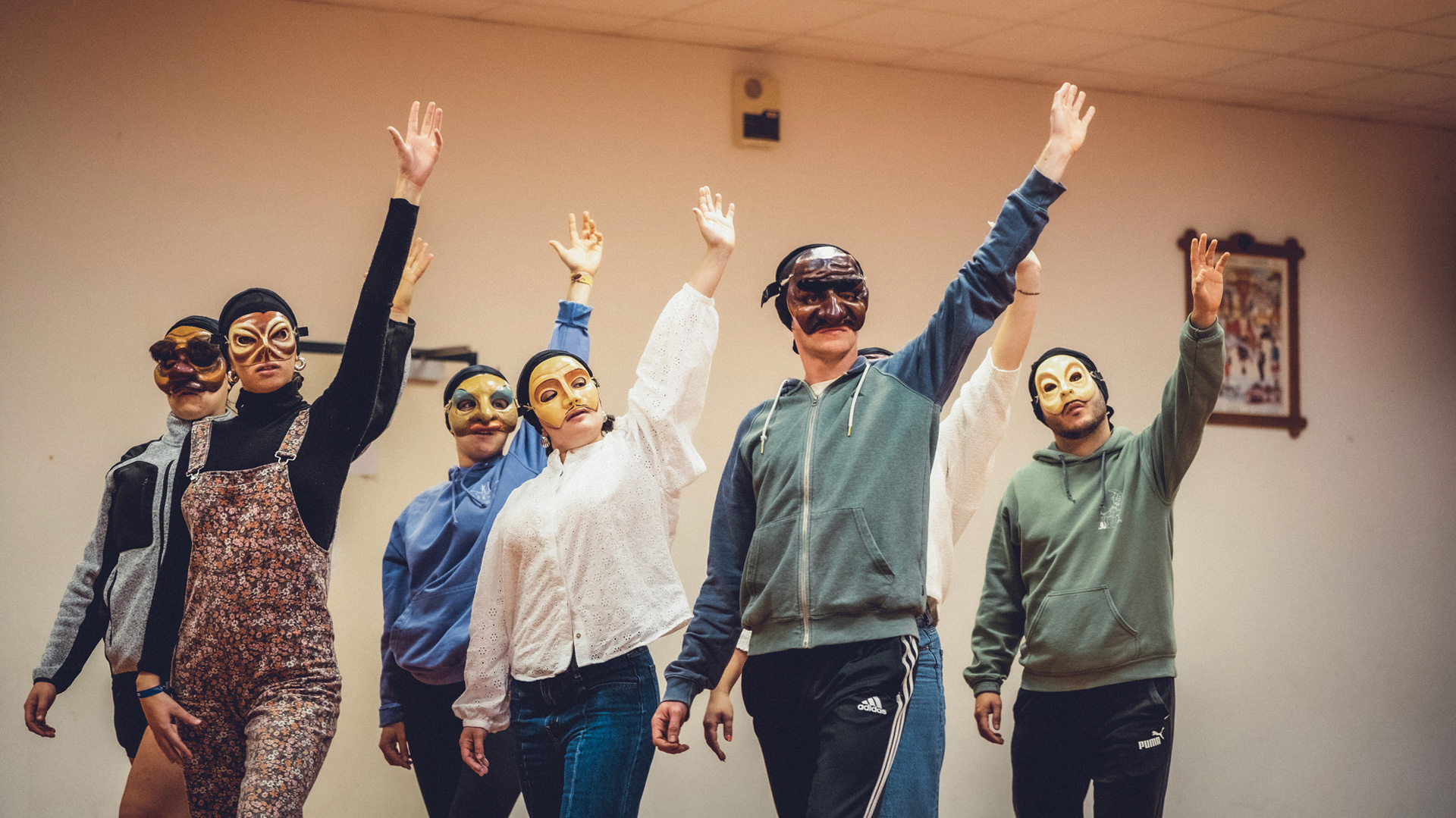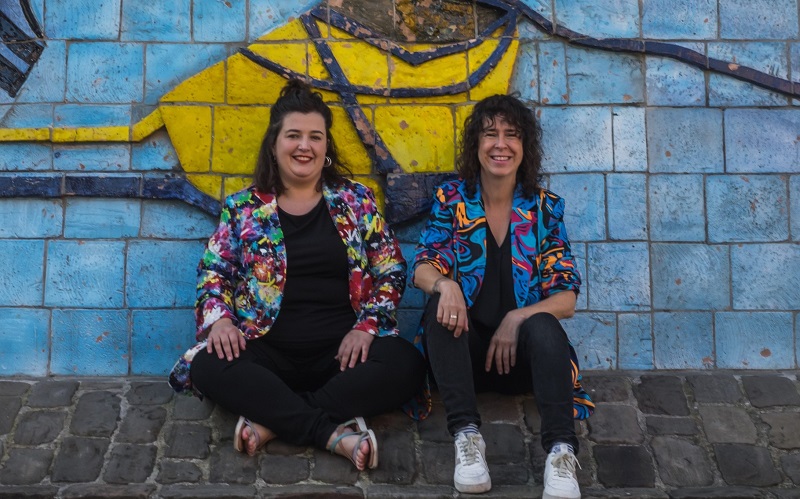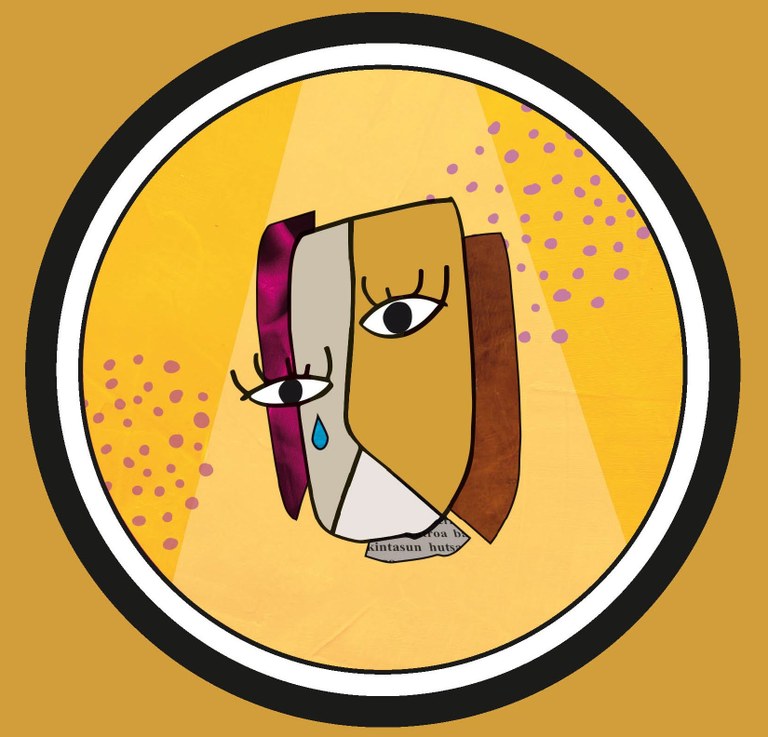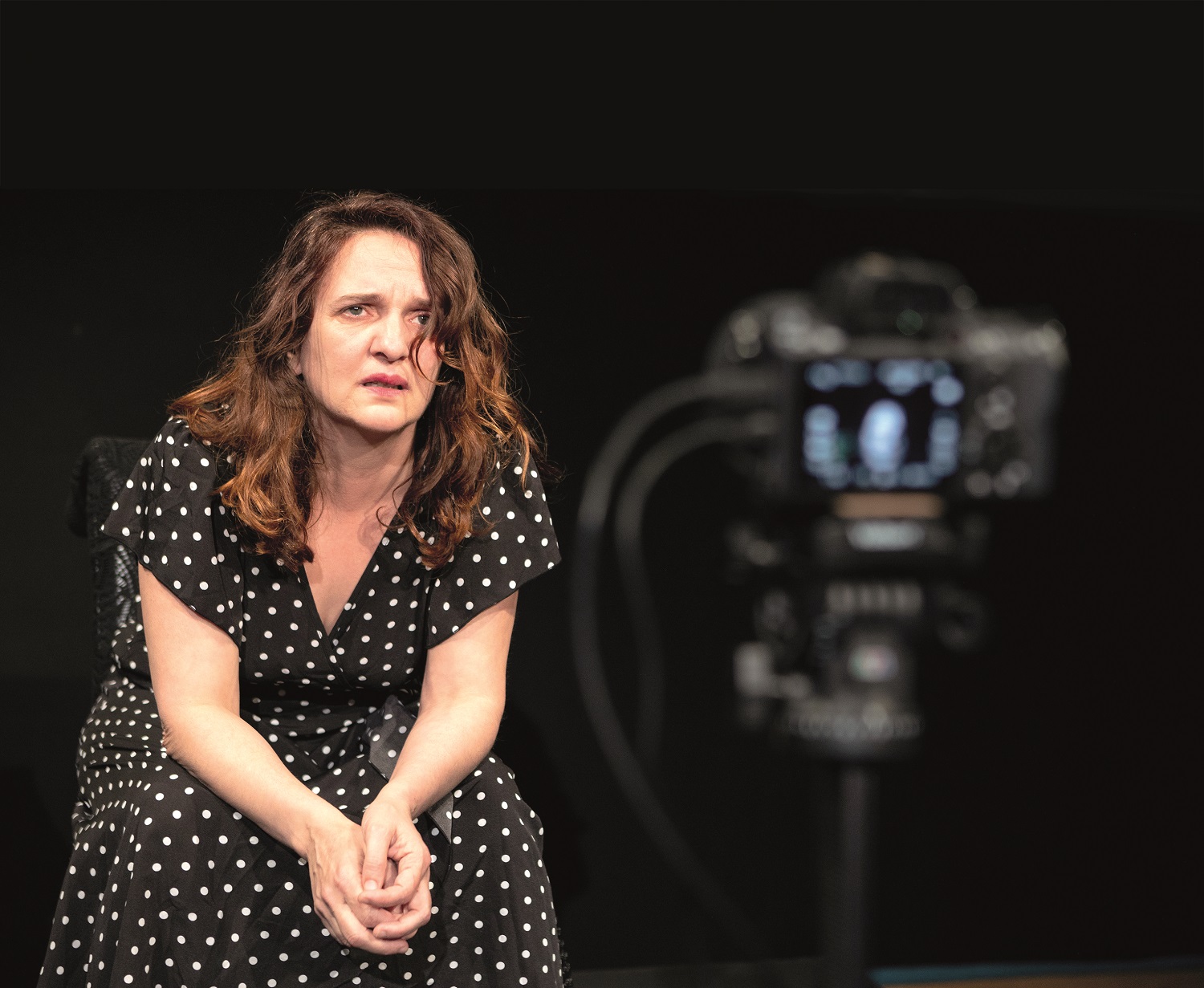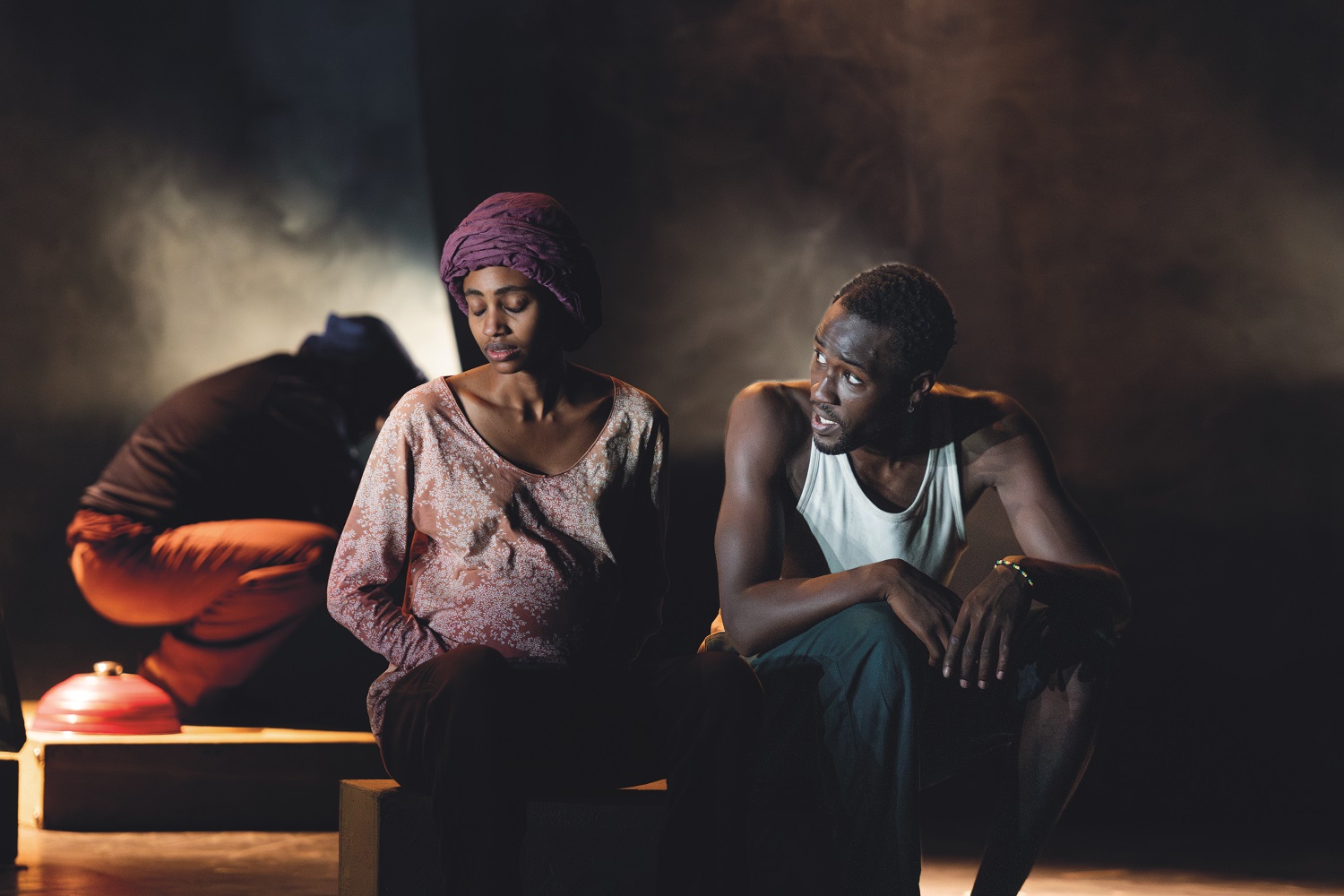Collective flowering
- Something is happening. Aware that the cultural model promoted by the institutions over the years does not suit them, more and more theatre companies are testing alternative formulas from the periphery. Team work is under way, demanding a more horizontal model. We asked three of them – Itziar Elias, Eneko Sagardoy and Ainara Gurrutxaga – about the current theatre landscape, its difficulties and challenges.
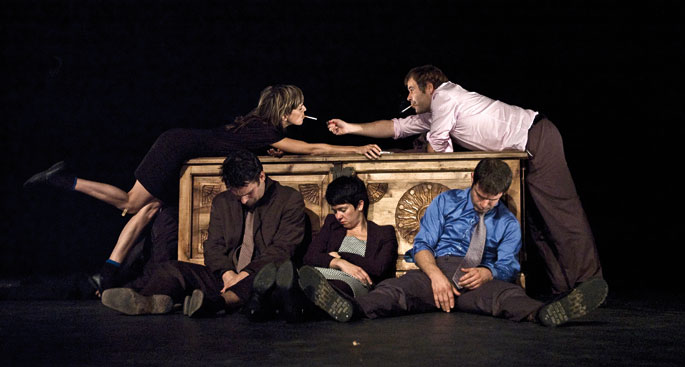
The movement is noted in the Basque theatre in recent years. “There are a lot of people who mean things and the public is eager to receive them. It’s a moment of great strength,” says Ainara Gurrutxaga of the Dejabu Panpin Laboratory. “There are many flowers on the periphery and perhaps now we have focused on them,” says Eneko Sagardoy of Lauka Teatro. It's not just about artistic proposals. In the forms of work it is also a fertile time in the theatre in Basque. The way we work collectively is gaining space and recognition. This flourishing may not be so obvious, but crucial, according to Sagardoy. Itziar Elias, for his part, believes that, after years looking abroad, the Basque theatre has once again begun to “create in our language what is ours”. “Most of the offerings that are out there are in the group, or some Basque creator, from literature, music, from home.” There is also a change in that.
The youngest of the three, Sagardoy, founded two years ago Lauka Teatroa along with three other friends. Although it is difficult to talk about the philosophy of the group, they have some clear ideas: they listen to the artistic and personal needs of the group and, depending on them, they create works, without paying much attention to the market – yes, to the public – the creative process is collective; they do theater in Basque and, without being enriched, they want to live from the theater. They have references, among others, the theater group Karrika de Durango, Artedrama, Kabia Laborstrategy, Dejabu Panpin Laborstrategy eta Metrokoadroka. Elias is also based on teamwork and, at the moment, in the Basque theatre, those of Dejabu are the ones who most fascinate him, “by the way in which they create and count their works”. Gurrutxaga explains what that way looks like: “We understand theater as a living art and therefore needed a laboratory. We also realized that we had to create theater on stage. The Basque theatre was then very intellectual, but it lacked strength. We felt that we had to create through experimentation. Finally, as we wanted to work collectively, it was essential to organize the company in a special way, as horizontally as possible.” That is the message of the Dejabucos: to be creators, not only in the plays, but also in the way of working and in the structure of the company itself. And to do so, we have to face the prevailing model of professionalism.
Institutions in prehistory
Gurrutxaga is critical of the cultural model promoted by institutions and, as with other disciplines, believes that theater has also influenced a lot. “Here we have not managed the space that art and culture needs in society. The same conditions are placed on one of the screws executors and an actor. You have to make your company and the company has to be economically viable. If you have benefits, goodbye. That’s where we stayed.”
In Hego Euskal Herria, the situation is different from that of Ipar Euskal Herria. Gurrutxaga, for his part, believes that most theatre companies have become victims of this system. “To access subsidies, they have incorporated into their administrative structures, distributors… and that chokes you up.” However, if someone prevails in theatres, they are the companies that dominate the scene. “When we say Loraldia we are talking about a creative resurrection, in different ways of doing, but, with the exception of a few, these people still do not enter the official circuits of theatres.” Faced with this, during these years, Dejabu has met with other companies around the world. In collaboration with Artedram and Le Petit Théâtre de Pain, they created two works – Cenizas and Hamlet – that filled the theatres. But they're an exception.
The criteria for selecting the institutions, according to Gurrutxaga, also reinforce a unique model: “The biggest companies are usually supported, the ones that sell outward, the ones that can do theater plays for everyone. The spectacle has also been promoted instead of creativity. It's been a way to work here: I buy your product for you to do in a theater. However, they have not let us manage the spaces.” However, he has come up with an appropriate model of recent times: Call for bridges. Since 2012, the cultural managers of the different municipalities have been promoting the Basque theatre, which every year has the collaboration of new creators. Last year a grant was awarded to Lauka Teatroa, thanks to which the work The Cell of Love is now being offered. “We need help as a bridge,” says Sagardoy. “The institutions have to know the same creation. We have to talk. While for us are closed cement mammoths, we will be empty products for them. We have a lot to break, and above all to create.”
Conditioned by the structure
The case of Elijah is special: it does not belong to a group that has been created to make theatre. On the contrary, yours is a group that has gathered around a play. He wanted to tell a story, and at first he went to the movies. He met the producer and screenwriter Izaskun Arandia. Then, based on the film script, the story began to adapt to the theater. He is now in theatres, but his administrative affairs are carried out by the company IZAR Films, of Arandia, and he is considered a lucky one.
The Dejabu de Gurrutxaga and the Lauka de Sagardoy, for their part, are cultural associations with structure. Sagardoy explained that this is the structure that was least required of them. “To be a company we would need some concrete income, a lot of money. We couldn't keep it. It hasn’t been a personal choice, we’ve felt quite compelled.” Gurrutxaga thinks in a similar way: “The creation of the company requires that there be a fixed person in the work team for administrative tasks. Making papers, asking for grants… We didn’t want to be tied to that.” The fact that it is a cultural association has its advantages: with low and unstable incomes it can progress in one way or another. On the contrary, simply because they have such a structure, they cannot ask for many subsidies: For example, the one that the Basque Government gives for production or the one that promotes the biennial activity of theatre companies. Furthermore, they are left out of the circuit arranged by the Basque Government with theatres, for the same reason. French legislation is not the same, so cultural associations in Ipar Euskal Herria received little help from Dejabu in order to carry out their work.
The moment of experimentation
Even though the Basque theatre is a sweet moment, there are many challenges we face. Elias has some ideas: the right to work in Euskera, the recovery of the memory of all the above and, above all, the education of the public. Sagardoy, on the other hand, lacks a network: “We are not well tied. We walk in bulk, accumulating forces here and there. At the national level we do not have solid projects to talk about our concerns, ways of working or joint projects.” It is a fertile but very dissolved community, in his opinion, that of the theatre in Basque.
Dantzerti has brought up the “university” of theatre and dance that will open the next course. He believes that for years there has been a great gap in the formation of theatre and professional dance in Basque, and that it is time to put the Basque in the centre. “It’s good news for the school, but we will also have to fight to speak in Basque, to train Basque professional actors and dancers.”
Gurrutxaga also sees things that need to be changed. “The cultural system is bureaucratic, it works in very old schemes and its walls are thick concrete. We'll need a good dynamite to crack it. But this is the moment of experimentation, of trying to guess how we want to live culture, art and society.” It also wants to change what usually happens with public spaces: “We get used to public spaces being managed as private spaces. A city hall may have a theater, but to access it you have to fill in a five-page petition, it can only be used in a few hours… Why not make it available to a group of citizens?” It also has a final challenge: “Those of us who work in culture also have to create our economies. We have always been subjects of the state. If we receive subsidies well, and if not, we do not exist. Well, no. Let's think about how we survive theater, culture. Let’s also change the economy.”
AMAK
Company: Txalo teatroa.
Created by:Elena Díaz.
Address: Begoña Bilbao.
Actors: Finally, Ibon Gaztañazpi will account for the details of Intza Alkain, Tania Fornieles, Oihana Maritorena and IRAITZ Lizarraga.
When: 10 January.
Where: Auditorio Itsas Etxea... [+]
Basabürüako ibar eskuineko gazteek lehen maskarada arrakastatsua eman dute igandean, Lakarrin.
By:
Mirari Martiarena and Idoia Torrealdai.
When: 6 December.
Where: In the San Agustín cultural center of Durango.
------------------------------------------------------
The fourth wall breaks and interferes directly, standing and fearless. ZtandaP is a way of counting... [+]
By:
Mirari Martiarena and Idoia Torrealdai.
When: 6 December.
Where: In the San Agustín cultural center of Durango.
-------------------------------------------------
The fourth wall breaks and interferes directly, standing and fearless. ZtandaP is a way of counting from... [+]
We're in chaos. That has been said to us by the French media, which Parliament has brought down the government on 4 December. The fear that political, institutional, social, economic chaos will rage us all in the horde of hell comes to our veins. What comedy we're going to play... [+]
Fight and metamorphosis of a woman
By: Eneko Sagardoy and Vito Rogado.
WHEN: 1 December.
WHERE: Serantes Room of Santurtzi.
-----------------------------------------------------------
Immediately after proposing the plan, the person who decided to buy the tickets online... [+]
DEBT
Text and address: Agurtzane Intxaurraga.
Actors: Look at Gaztañaga, Iñake Irastorza, Jabi Barandiaran.
When and where: 25 October, Gazteszena (Donostia).
----------------------------------------
To the flower that is looking for its own light, being grasped at its... [+]









